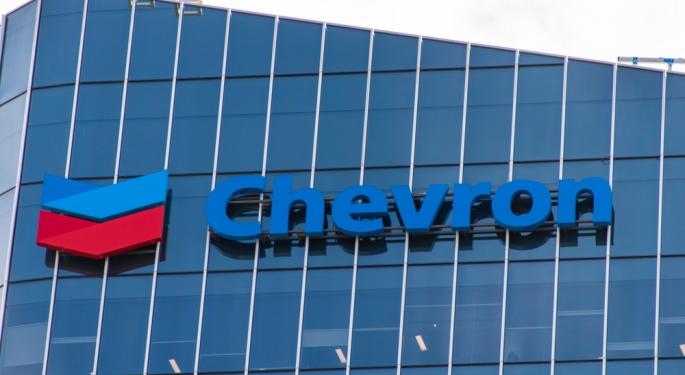Chevron Set To Restart Venezuela Oil Operations After Trump Reversal
U.S. President Donald Trump is pressing ahead with a move to allow Chevron to resume oil operations in Venezuela, reversing a previous policy stance and defying opposition from senior Republicans.
The shift comes after a recent prisoner exchange with Caracas and highlights Trump's focus on securing U.S. access to Venezuela's vast energy reserves.
Citing people familiar with the discussions, the Wall Street Journal noted that Trump met at the White House last week with Senator Marco Rubio, former special envoy Ric Grenell, and other top aides.
Also Read: Chevron Wins Hess-Related Arbitration, Targets $1 Billion In Merger Synergies
During the meeting, Trump acknowledged Rubio's long-standing opposition to engaging with President Nicolás Maduro's regime but made it clear he wanted American companies to be prioritized for Venezuela's oil.
Days later, a prisoner deal was announced, releasing the final ten detained Americans held by Venezuela.
In a rare moment of gratitude, Maduro this week thanked Trump, Rubio, and Grenell for their roles in the prisoner swap that also allowed more than 250 Venezuelans held in El Salvador to return home. "Beyond all of our differences, we have to learn in this life to be thankful," Maduro said on state television.
The WSJ reported that Chevron would operate without paying royalties or taxes to Maduro's government under the agreement in progress, though full terms have not been disclosed.
A senior State Department official told WSJ that "the U.S. government will not allow the Maduro regime to profit from the sale of oil." Rubio, a vocal critic of the Biden-era oil licenses, had called for terminating all deals that benefited Maduro.
The Trump administration revoked Chevron's license earlier this year under pressure from Florida Republicans and critics of Maduro, including Rubio.
Chevron has long argued that reestablishing operations in Venezuela would help counter China's influence and bolster U.S. energy security. Officials say Trump shares that view and sees Venezuela's oil, mineral, and gas resources as a key strategic opportunity.
However, energy experts questioned why Maduro would agree to a deal with no financial gain. "Why would Maduro allow barrels to go to the U.S.?" asked Francisco Monaldi of Rice University. "He can send them to China and get paid, maybe at a discount, but better than zero."
The Chevron deal follows a broader softening in Trump's approach toward Venezuela. His administration has scaled back the "maximum pressure" campaign launched during his first term, which aimed to topple Maduro amid accusations of election fraud and repression.
Meanwhile, Venezuela's oil output has hovered around 900,000 to 1 million barrels per day. Citing some analysts, the report says Caracas is using transshipment routes through countries like Malaysia to move crude to China, skirting U.S. sanctions. The White House has floated the possibility of 25% tariffs on countries importing Venezuelan oil.
Last week, Chevron won a dispute with Exxon Mobil Corporation (NYSE:XOM) over Hess Corp's (NYSE:HESS) offshore oil assets in Guyana.
The International Chamber of Commerce's (ICC) ruling, which favors Chevron, allows the oil major to complete its $53 billion acquisition of Hess.
The company also announced its plans for a $5 billion blue hydrogen and ammonia facility, "Project Labrador," in Port Arthur, Texas. The facility aims to be groundbreaking in 2027 and operational in 2032.
Price Action: CVX stock traded 0.07% higher to $155.94 in after-hours trading on Thursday.
Read Next:
Photo via Shutterstock
© 2025 Benzinga.com. Benzinga does not provide investment advice. All rights reserved.
Posted-In: Government Large Cap News Top Stories General



